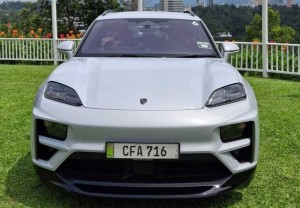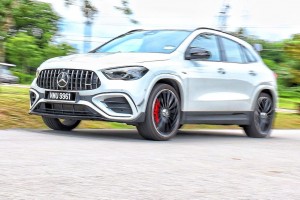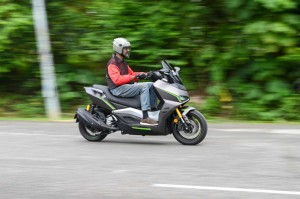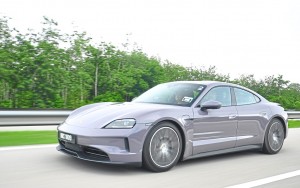Geely in talks for control of flying taxi startup Volocopter
By BLOOMBERG | 14 November 2024
BERLIN: Geely is in advanced talks to take control of Germany’s Volocopter Gmbh in a deal that would save the flying taxi startup from potential bankruptcy, according to people familiar with the talks.
Zhejiang Geely Holding Group Co. has discussed taking a majority stake in Volocopter by leading a consortium that will inject fresh capital into the company, said the people, asking not to be identified discussing private matters.
The funding round would be about US$95 million in exchange for roughly 85% ownership, said one of the people. The family office of German industrialist Gerhard Sturm would also participate in the deal, the person said.
If completed, the deal would slash the startup’s valuation from a peak of US$1.9 billion in 2022 to about US$110 million, the people added. The Geely group is working through due diligence and aims to finish next month, one person said.
Volocopter has also held discussions with other potential bidders. No final decisions on the terms have been made and the deal could still fall apart.
Volocopter’s financial troubles show the fraught effort to make flying cars a reality in the US and Europe, where startups often collapse before they’re able to sell a single ride.
In China, however, the government has made boosting the "low-altitude” economy a priority, along with an electric vehicle industry that is bombarding Germany’s automakers with competition.
A Geely spokesperson declined to comment. Sturm’s office didn’t respond to a request for comment.
With the Geely deal, Volocopter is weighing moving the manufacturing of its future aircraft to China, the people said. Its current, smaller model is being built in Germany.
The Volocopter representative said it considers the German facility a "reference facility” for working out efficient production practices. That will give the company a blueprint for scaling up as it expands overseas, she added.
Formed in 2011, Volocopter was among a raft of audacious startups developing electric vertical take-off and landing, or what the industry called EVTOL.
It raised US$600 million from German firms and global investors, including Mercedes-Benz Group AG, DB Schenker, Blackrock Inc. and Neom, Saudi Arabia’s futuristic city project.
The startup burned through cash and swapped out its chief executive in 2022. Volocopter planned to debut its first commercial aircraft, a two-seater called the VoloCity, at the Olympics this summer in Paris. But it missed the deadline.
In August, CEO Dirk Hoke said the company instead expects to start operations in the first half of 2025. He also said Volocopter had received enough funding to complete the regulatory approval process for flying an aircraft.
Geely, the major holder of Volvo Car AB, first invested in 2019. Its home market has a number of EVTOL hopefuls, which are pitching crafts that will cost a fraction of American rivals.
In October, Chinese officials gave the green light for EHang Holdings Ltd. to begin trials of its air-taxis this year.
Kittyhawk, an air-taxi upstart backed by Google co-founder Larry Page, folded in 2022. Lilium NV, another entrant based outside of Munich, filed for insolvency in October after failing to secure a lifeline from the German government.
The company, whose largest shareholder is Tencent Holdings Ltd., said it hopes to continue operations with its first piloted test flight next year.
In September, Volocopter announced that Dieter Zetsche, the former Daimler CEO, would join as its board chair. The company also said that Hoke would leave his role as CEO in early 2025. It has yet to name a replacement.
Tags
Autos Geely
Reviews

Porsche Macan EV: Re-energised exhilaration

All-electric Leapmotor C10 SUV ticks all the right boxes

New Kia Sportage: Versatile and stylish

6.6
Triumph Scrambler 1200 X: A good balancing act

8.3
Mercedes-AMG GLA 45 S 4Matic+: Poking the pocket rocket

8.0
Moda Sporter-S 250: A new player in town

Porsche Taycan E-xperience drive: Kuala Lumpur - Kuantan

Mercedes-Benz E 350 e PHEV: Refined elegance, timeless prest...
Videos

StarCarSifu Editors' Choice Awards 2024: Top winners

The Snowball – Lamborghini’s Heartwarming Christmas Story of...

EVOGO battery swapping solution showcased at IAA Mobility 20...
